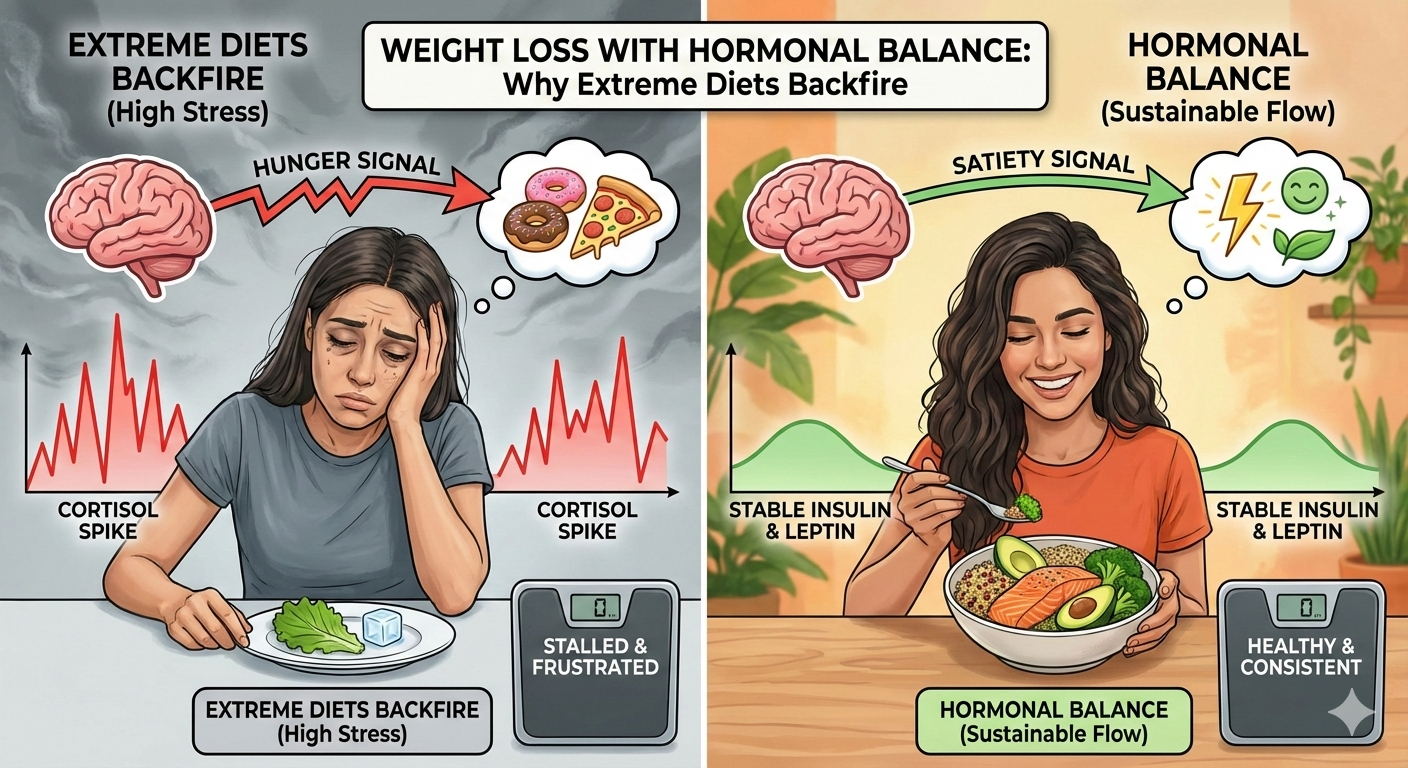Hormone Replacement Therapy (HRT) has long been a topic of debate in the medical community. While it offers undeniable benefits for many, such as alleviating menopausal symptoms and protecting bone health, it has also raised concerns due to potential risks like cardiovascular issues and certain cancers. As the prevalence of HRT continues to grow, it’s essential to explore whether it is truly a boon or a bane for those who use it. This blog post will delve into the advantages and disadvantages of HRT, backed by evidence from peer-reviewed research, to provide a balanced view of its impact on health.
What is Hormone Replacement Therapy (HRT)?
HRT involves the administration of hormones, such as estrogen and progesterone, to replace the hormones that the body no longer produces in sufficient amounts after menopause. Menopause typically occurs between the ages of 45 and 55, marking the end of a woman’s reproductive years. The symptoms associated with menopause, including hot flashes, mood swings, and vaginal dryness, can be severe and life-altering. HRT is designed to mitigate these symptoms and improve quality of life.
Benefits of HRT
-
Alleviation of Menopausal Symptoms
One of the most widely recognized benefits of HRT is its ability to reduce the severity of menopausal symptoms, particularly hot flashes vaginal dryness, and night sweats. -
Improvement in Bone Health
Post-menopausal women are at a higher risk of osteoporosis due to the decrease in estrogen levels, which contributes to the loss of bone density. HRT can help slow down this process by maintaining bone strength. -
Cardiovascular Protection (When Initiated Early)
Some research suggests that HRT, especially when started around the time of menopause, may have a protective effect on heart health. -
Mood Stabilization and Cognitive Benefits
Many women experience mood swings and depression during menopause, possibly due to hormonal fluctuations. HRT has been shown to stabilize mood and may even protect against cognitive decline.
Risks of HRT
-
Increased Risk of Certain Cancers
One of the primary concerns surrounding HRT is the potential for an increased risk of incident and fatal breast cancer, particularly in women who use combined estrogen-progesterone therapy for extended periods. A large cohort study published in The Lancet Oncology (2019) found that long-term use of combined HRT was associated with a higher risk of breast cancer, and this risk increased with duration of therapy (Beral et al., 2019). However, the risk is lower in women using estrogen-only therapy, particularly in those who have had a hysterectomy. -
Cardiovascular Risks (When Started Late)
While there is some evidence suggesting cardiovascular protection with early initiation of HRT, starting therapy many years after menopause can increase the risk of heart disease and stroke. -
Blood Clotting Issues
HRT, particularly when taken in oral form, can increase the risk of blood clots, leading to deep vein thrombosis (DVT) or pulmonary embolism. A systematic review in The BMJ (2019) highlighted that oral estrogen therapies are linked to an increased risk of thrombotic events, whereas transdermal patches may pose a lower risk (Lidegaard et al., 2019). -
Risk of Gallbladder Disease
Studies have also shown that HRT may increase the risk of gallbladder disease. According to research published in The British Medical Journal (2006), women on HRT are at an increased risk of developing gallstones and other gallbladder-related issues, which may require surgery (Lidegaard et al., 2006).
The Bottom Line: Boon or Bane?
The decision to use HRT should be individualized, taking into account the specific health profile, risk factors, and the timing of therapy. For many women, HRT is a true boon—relieving menopausal symptoms, improving quality of life, and protecting against bone loss and, potentially, cardiovascular issues. However, it is not without its risks. The potential for increased cancer risk, cardiovascular events, and clotting disorders means that it is not a one-size-fits-all solution.
Recent research has made it clear that the timing of HRT initiation plays a significant role in determining whether it will be beneficial or harmful. Women who start HRT near the onset of menopause appear to experience more benefits with fewer risks, while those who begin therapy later may face greater health risks.
Ultimately, the decision to pursue HRT should be made in consultation with a healthcare provider, considering both the potential benefits and the risks. Regular follow-up care and monitoring are essential for those undergoing HRT, ensuring that any adverse effects are identified and managed early.
🔗 You May Also Find These Readings Helpful:
- [Your Anti-Aging Blueprint: A Science & Ayurveda-Inspired Gift Guide for Women]
-
[A Doctor’s Natural Approaches for Perimenopause Symptom Relief]
- [Menopause-Friendly Gut & Bone Health Diet and Lifestyle Plan]
References:
- Beral V; Million Women Study Collaborators. Breast cancer and hormone-replacement therapy in the Million Women Study. Lancet. 2003 Aug 9;362(9382):419-27. doi: 10.1016/s0140-6736(03)14065-2. Erratum in: Lancet. 2003 Oct 4;362(9390):1160.
- Yang XP, Reckelhoff JF. Estrogen, hormonal replacement therapy and cardiovascular disease. Curr Opin Nephrol Hypertens. 2011 Mar;20(2):133-8.
- Contemporary menopausal hormone therapy and risk of cardiovascular disease: Swedish nationwide register based emulated target trial
- Yuk JS, Park JY. Menopausal hormone therapy increases the risk of gallstones: Health Insurance Database in South Korea (HISK)-based cohort study. PLoS One. 2023 Dec 4;18(12):e0294356.

Akanksha Sharma
Dr. Akanksha Sharma (MD), Head Writer and creator of AtoZ of Pregnancy, is dedicated to empowering women, parents, and families through 360-degree knowledge. She and her team provide evidence-based advice to guide families through pregnancy, parenting and beyond.






